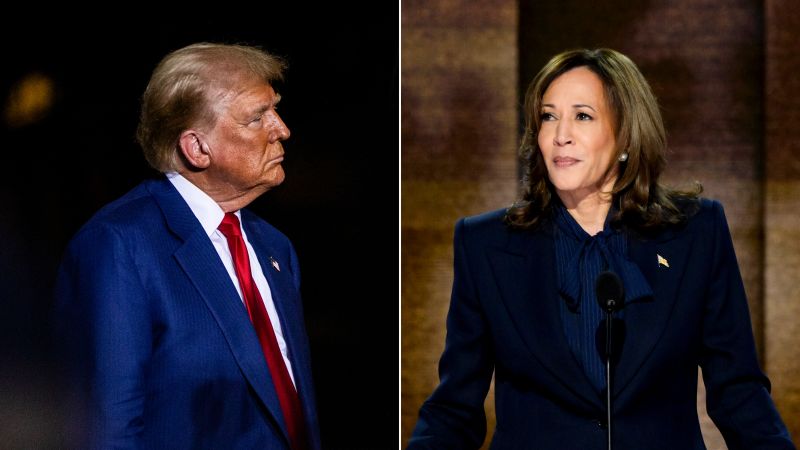CNN polls conducted by SSRS in six key battleground states show that Vice President Kamala Harris holds an advantage over former President Donald Trump in Wisconsin and Michigan, while Trump leads in Arizona. However, Georgia, Nevada, and Pennsylvania are too close to call, with both candidates splitting likely voters almost evenly. A significant portion of likely voters in all six states have not firmly decided on their choice, indicating potential shifts in opinion as the campaign progresses.
The polls indicate that Pennsylvania and Georgia will play crucial roles in determining the outcome of the 2024 presidential race. President Joe Biden’s victories in these states in 2020 were narrow, making them key battlegrounds in this election. Harris could secure a win by carrying Biden’s previous wins outside of these six states, along with Wisconsin and Michigan, and winning Pennsylvania. On the other hand, Trump winning Georgia and Pennsylvania would put him over the top, even without Arizona, where he currently leads.
Harris, now the Democratic Party’s nominee after replacing Biden, faces challenges on economic issues but has narrowed the gap with Trump on trust to handle the economy. Voters in these states see Trump as having clear policy plans, but view Harris’ policies as more mainstream and Trump’s as too extreme. Harris leads in being seen as someone who cares about people like voters and someone they would be proud to have as president.
Independent voters, whose preferences vary widely among states, are likely to say that they could change their minds about the race. Harris is tied to an unpopular White House, with Biden’s approval ratings in negative territory. However, Harris still manages to gain support from likely voters who disapprove of Biden’s job as president, indicating potential crossover appeal.
Black voters play a significant role in Georgia and Pennsylvania, with Harris enjoying strong support among Black likely voters. Women voters also show a preference for Harris in these states. In Pennsylvania, a large gender gap is observed in presidential preference, with Harris leading significantly among female likely voters. Younger voters also favor Harris in both states, but White voters without college degrees overwhelmingly support Trump.
In Arizona and Nevada, Trump holds a narrow lead, with more support among Latino voters and White voters without college degrees. Harris struggles to gain support among key Democratic demographics in Arizona compared to Nevada, where she carries a majority of Latino likely voters. Downballot races in both states indicate a more favorable climate for Democrats, but Trump’s appeal on economic and immigration issues remains strong in these states. Third-party and independent candidates hold slim support, but even minor levels of support could impact the close race.


